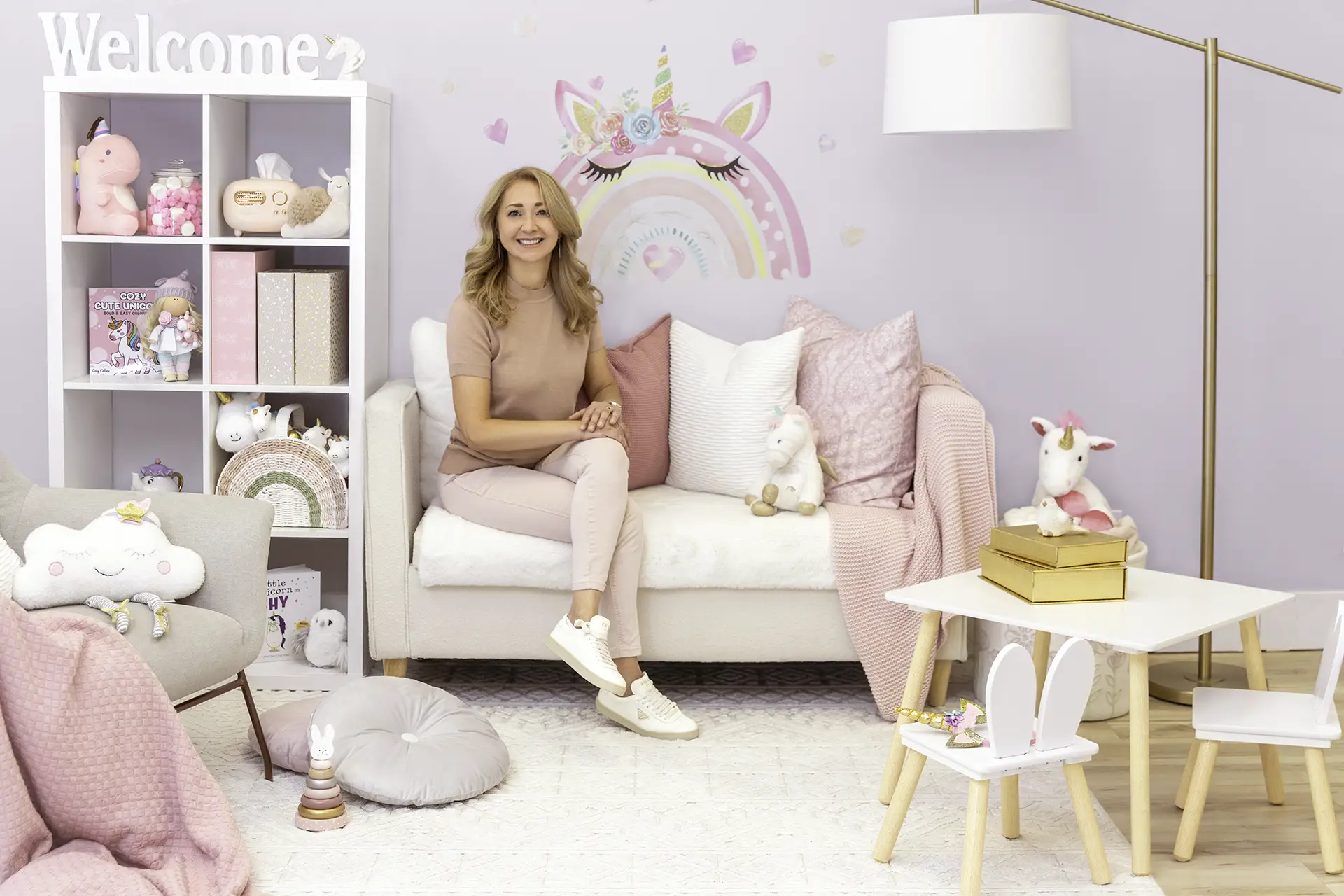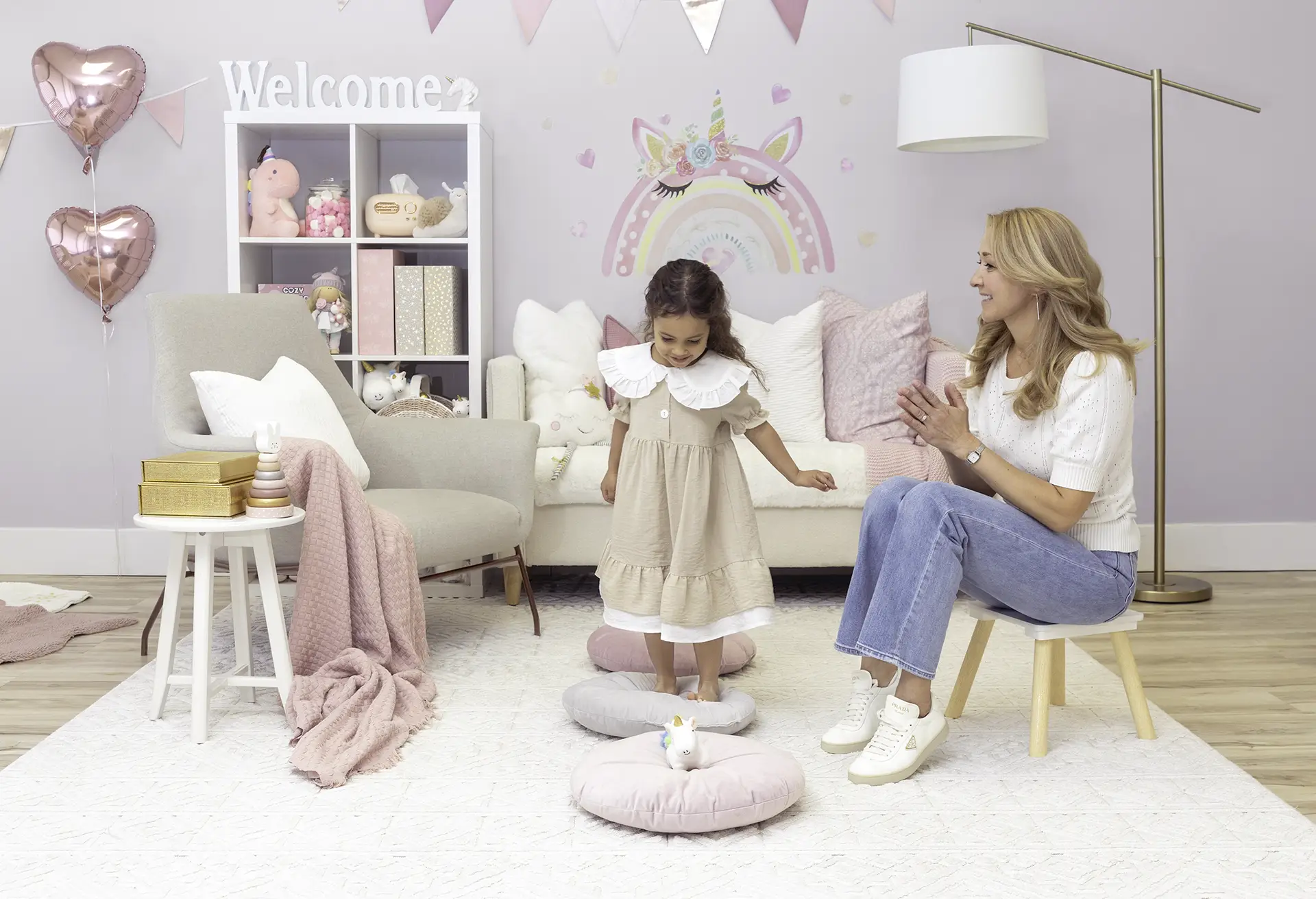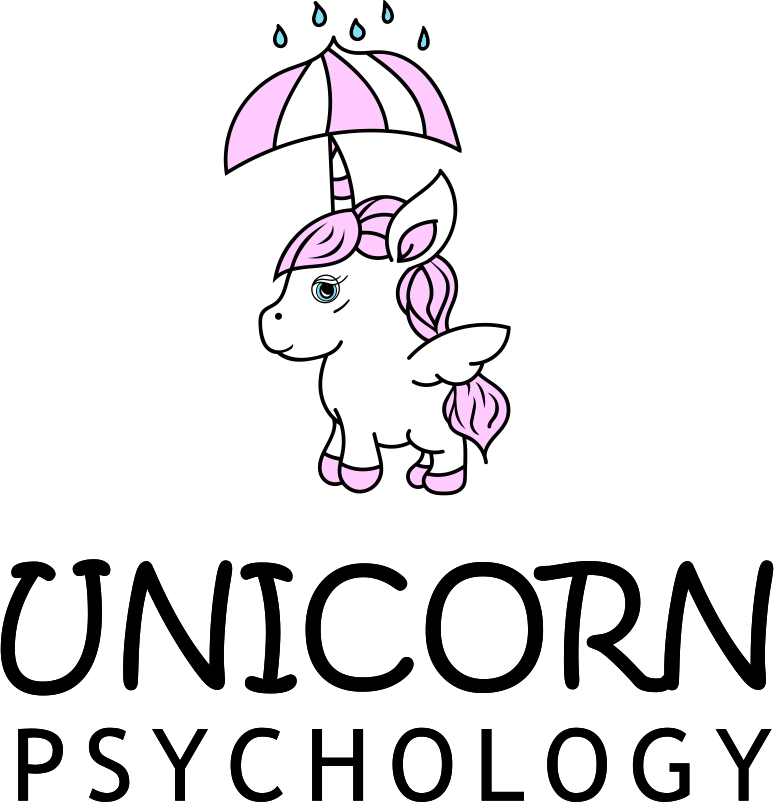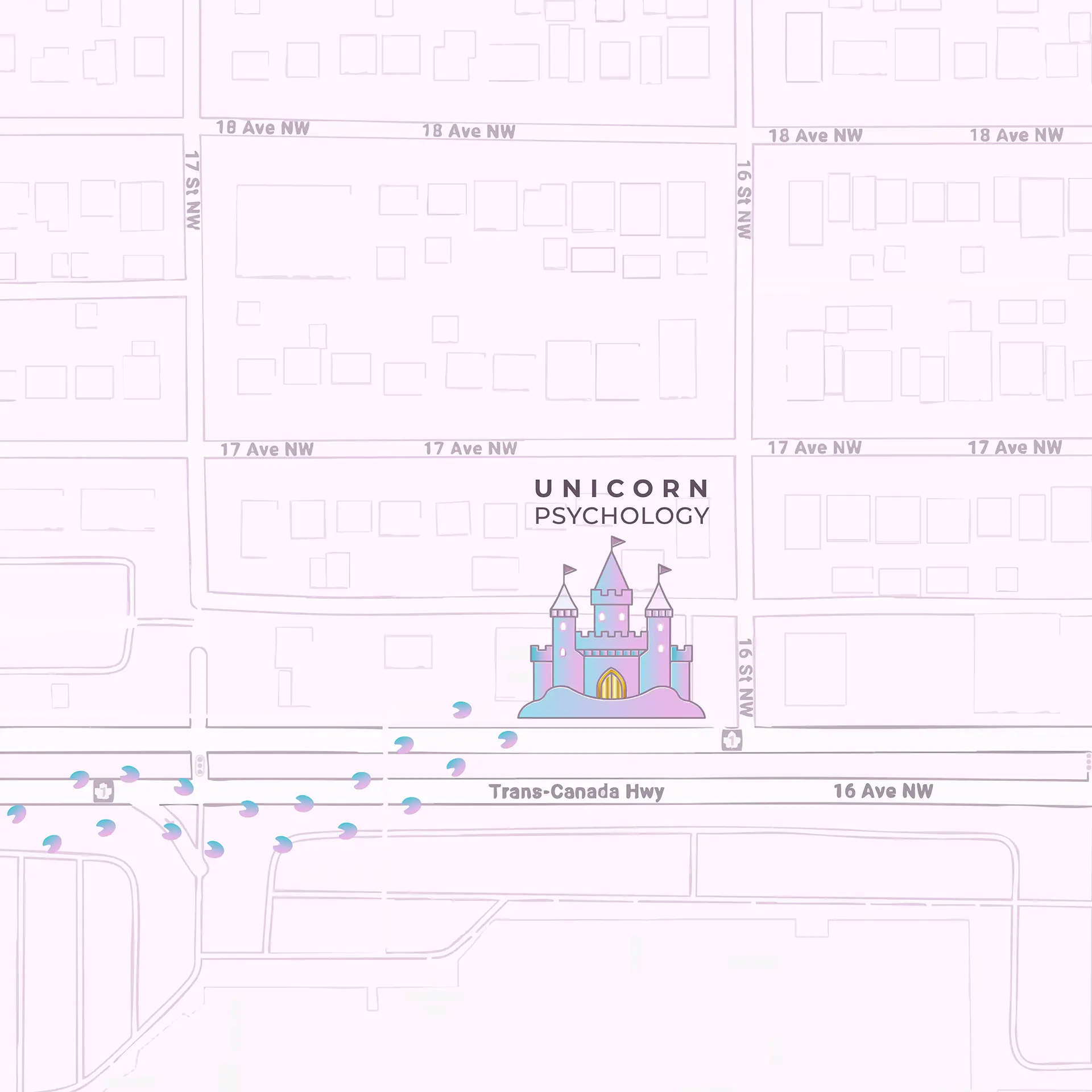Children see the world differently than adults. They don’t always have the words to explain their emotions, worries, or experiences —but they can show everything through play.
At Unicorn Psychology in Calgary, play therapy provides a safe space where children can:
- Process emotions and work through challenges at their own pace
- Express fears, joys, and struggles in a way that feels natural
- Strengthen emotional resilience and develop healthy coping strategies
As a parent, you may notice changes in your child’s behaviour — sudden tantrums, withdrawal, or increased anxiety. These are signals that they need support.
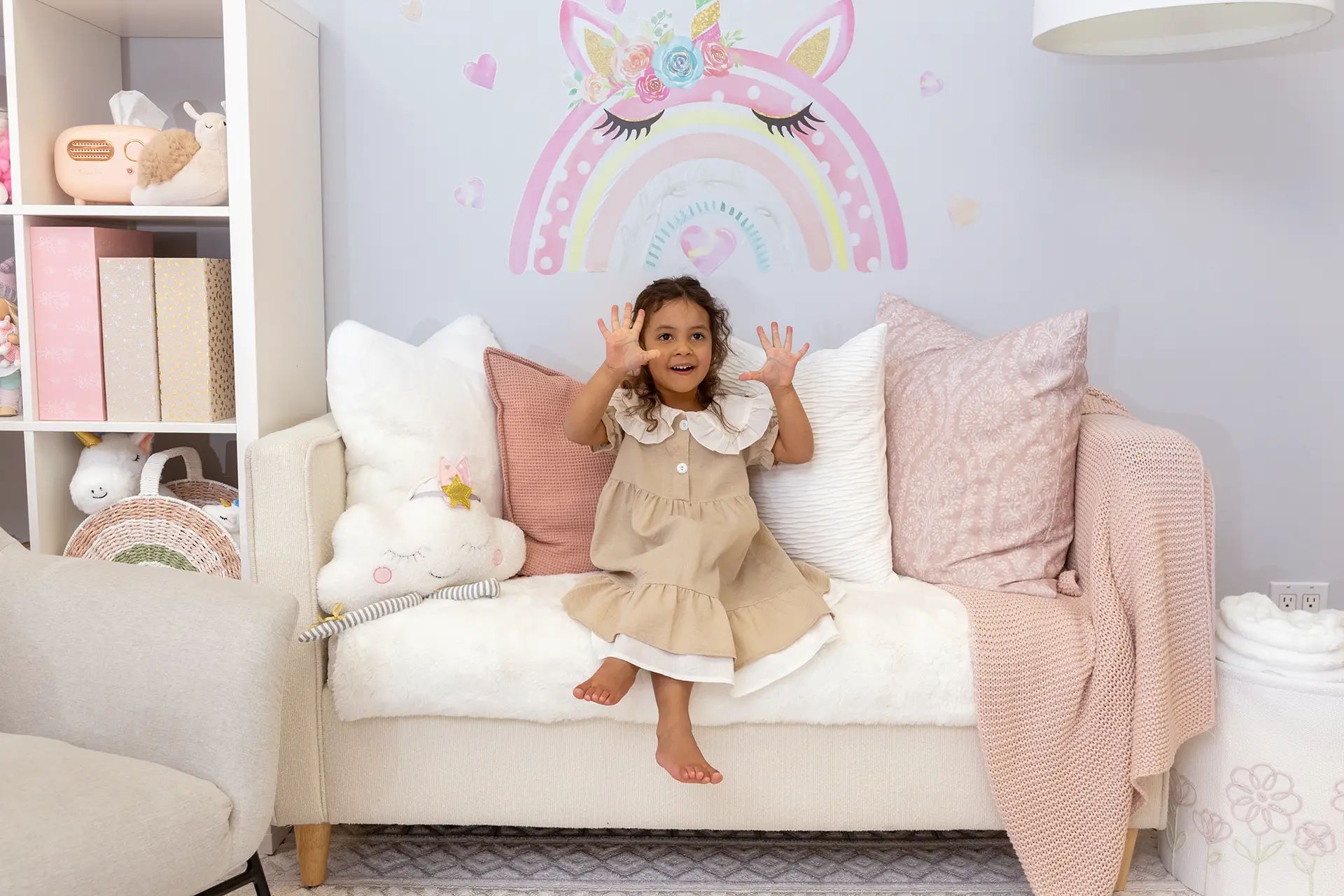
How play therapy supports your child
Play therapy allows children to work through emotions, build confidence, and feel understood, even when they struggle to put their feelings into words.
When Words Aren’t Enough
Sometimes, big feelings are hard to put into words. But watch a child at play, and you’ll see their whole inner world come to life—their worries, their joys, their struggles, and their dreams.
Play therapy gives kids a safe, comforting space to explore their emotions in the way they know best — through imagination, storytelling, and creativity. Whether they’re building, pretending, or drawing, they’re also expressing, processing, and growing. Through play, children find their voice, build confidence, and discover new ways to navigate their feelings small or big — all while having fun!
 Helping Your Child Think Through Challenges
Helping Your Child Think Through Challenges
Through pretend play, hands-on activities, and playful exploration, children learn to think on their feet, try new ideas, and come up with “Aha” moments. In play therapy, kids experiment, make mistakes, and try again in a way that feels safe and exciting. Each challenge becomes a game, each obstacle a puzzle, helping them build confidence and flexible thinking.
 Big Feelings – Big Confidence
Big Feelings – Big Confidence
As our kids grow, they are figuring out who they are—what they love, what they’re good at, and how they fit into the world. Play therapy helps children explore different roles, express their emotions, and understand themselves in a safe and supportive way. Through play, they learn what makes them unique, what challenges they can overcome, and how to trust themselves in new situations. This sense of self-awareness and resilience helps them face the world with confidence, curiosity, and courage.
![]() Growing Friendships: Helping Kids Connect
Growing Friendships: Helping Kids Connect
Friendships can be tricky! Sharing, taking turns, understanding feelings, and knowing how to join in. When kids struggle with these skills, it often shows up as frustration, withdrawal, or big emotions. Through play therapy, children learn how to make and keep friends, handle social challenges, and express their feelings in a way that strengthens relationships. Instead of reacting with outbursts or shutting down, they develop the confidence to communicate and connect with others in a positive way. Friendships grow in small moments — learning to listen, taking turns, and feeling safe to be themselves. With the right support, kids can build meaningful relationships that help them feel happy, included, and understood.
 Healing Through Play: Processing Trauma in a Safe Space
Healing Through Play: Processing Trauma in a Safe Space
When a child experiences something overwhelming, they may not have the words to express how they feel—but their emotions don’t disappear. Instead, they may show up in fears, mood changes, or unexpected behaviours. Through storytelling, drawing, and role-playing, they can explore their emotions safely, regain a sense of control, and develop healthy coping strategies. Healing happens when a child feels safe, seen, and supported.
 Growing Together: Strengthening Parent-Child Relationship
Growing Together: Strengthening Parent-Child Relationship
A child’s world feels safest when they know, deep down, “My parent is here for me.” That sense of security—built through love, play, and shared moments—is the foundation of emotional well-being.
Play therapy helps strengthen this bond by creating joyful, meaningful experiences between parents and children. Through play, kids feel heard, understood, and deeply connected, making it easier for them to express their emotions, navigate challenges, and build trust.
Every giggle, every shared game, every “I see you” moment brings you closer. When your child feels safe in their connection with you, they grow with confidence, knowing they are loved just as they are.
![]() Looking for Play Therapy in Calgary?
Looking for Play Therapy in Calgary?
At Unicorn Psychology in Calgary, we provide compassionate, evidence-based play therapy to help children develop emotional resilience, problem-solving skills, and healthy relationships. If your child is struggling with anxiety, behavioural challenges, or emotional regulation, play therapy can be a support for their emotional and social development.
Areas of Support
Our playful Instagram

